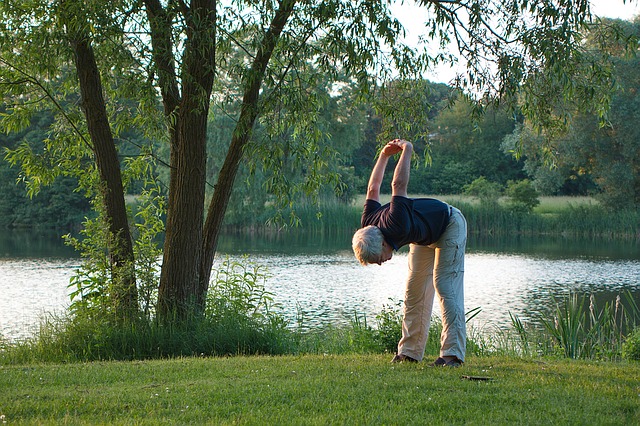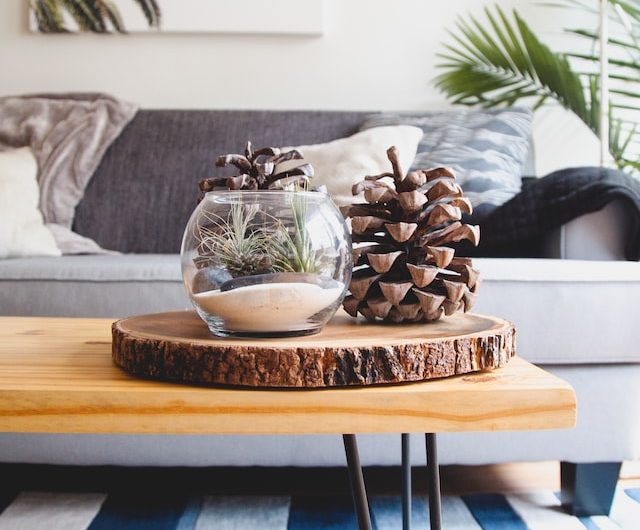
Getting old and becoming unwell are both inevitable, aren’t they? Well yes and no. We can’t stop the march of time but you can stave off ill health for a long time by looking after yourself now. Even if you are beginning to find it hard and are wondering how long you can stay in your own home following these guidelines, perhaps with the aid of home care and some home adaptations you can put off the day you need to move out.
Keep Active
Perhaps the biggest change you undergo is the move from an active, working individual to a retired person. It might not seem like much changes at first but it’s quite easy to slowly find yourself becoming less and less active. No longer do you have that ten-minute walk to and from the station every morning. No longer can you nip to the gym in the basement in your lunch break or go for a quick swim after work. Make sure you replace the activity you did while working with other activities because staying active is one of the best ways older people can avoid falls. Join your local leisure centre and use their gym and swimming pool or take part in exercise classes and start walking to the shops instead of driving. And if you ever think you might need a stairlift in your home – don’t – the exercise walking up and down the stairs (providing it is safe to do so) will help keep you fit.
Keep Appointments
There’s a whole team of professionals from Doctors and Dentists to Podiatrists looking out for you. Make regular appointments for check-ups and make sure you keep them! If you have difficulty in getting to appointments, ask about Ring and Ride or similar services who can offer you a lift.
Keep in Touch
Without the structure of a working life some older people become increasingly isolated and lonely. Make an effort to keep in touch with your friends and family, and if you’re worried that you are becoming a burden make sure to check out day centres and meet-ups where you can meet other people who are also looking to make new friends. Or maybe consider companion care if you also need some help around the home.
Even a family caregiver can benefit from companion care or why not discover the benefits of respite care if that is more appropriate. You may be surprised at the options available in terms of bespoke senior care and domiciliary care that can help avoid social isolation. This is also a good time to speak to you children about future care needs so that you have a plan in place should you need it.
Eat Well
Good health depends on providing your body with the high-quality fuel it needs to repair and replenish itself. Make sure you continue to eat a balanced and varied diet with plenty of protein, starchy rather than sugary carbohydrates and good fats. If you are finding your digestion is a little delicate as you get older then speak to your doctor about how to manage your symptoms rather than restricting your diet unnecessarily.
Sleep Enough
It’s a bit of a stereotype that older people sleep all the time, but you may find that your sleep patterns start to change as you age. Some people find they need a lot less sleep than they used to or that they need to break their sleeping into two or more long naps rather than a single overnight session. It is important that you listen to your body rather than society and take the amount of sleep you need at the time you require it in order to allow your body a chance to rest and rejuvenate itself.
 Why exercise doesn’t have to mean pain
Why exercise doesn’t have to mean pain  5 Tips on How to Train Your Brain
5 Tips on How to Train Your Brain  Is Your Posture Making You Ill?
Is Your Posture Making You Ill?  Healthy Eating Nutrition Tips for Busy Lifestyles
Healthy Eating Nutrition Tips for Busy Lifestyles  Tech for a Tranquil Mind – Apps and Devices for Mental Wellness
Tech for a Tranquil Mind – Apps and Devices for Mental Wellness  Is it time to embrace Quiet Living?
Is it time to embrace Quiet Living?  Why 2026’s top bloggers are going back to paper planners to spark creativity
Why 2026’s top bloggers are going back to paper planners to spark creativity